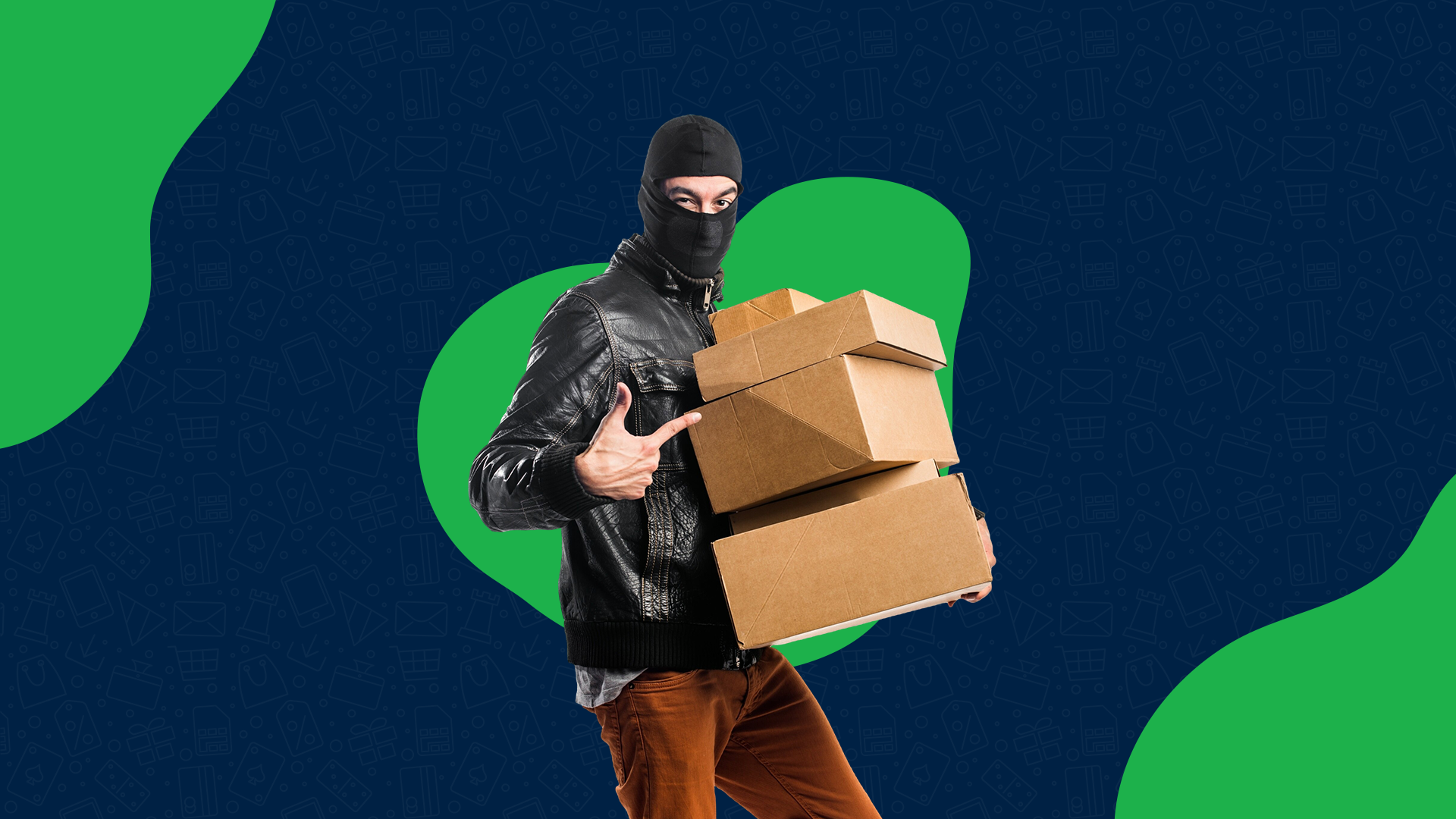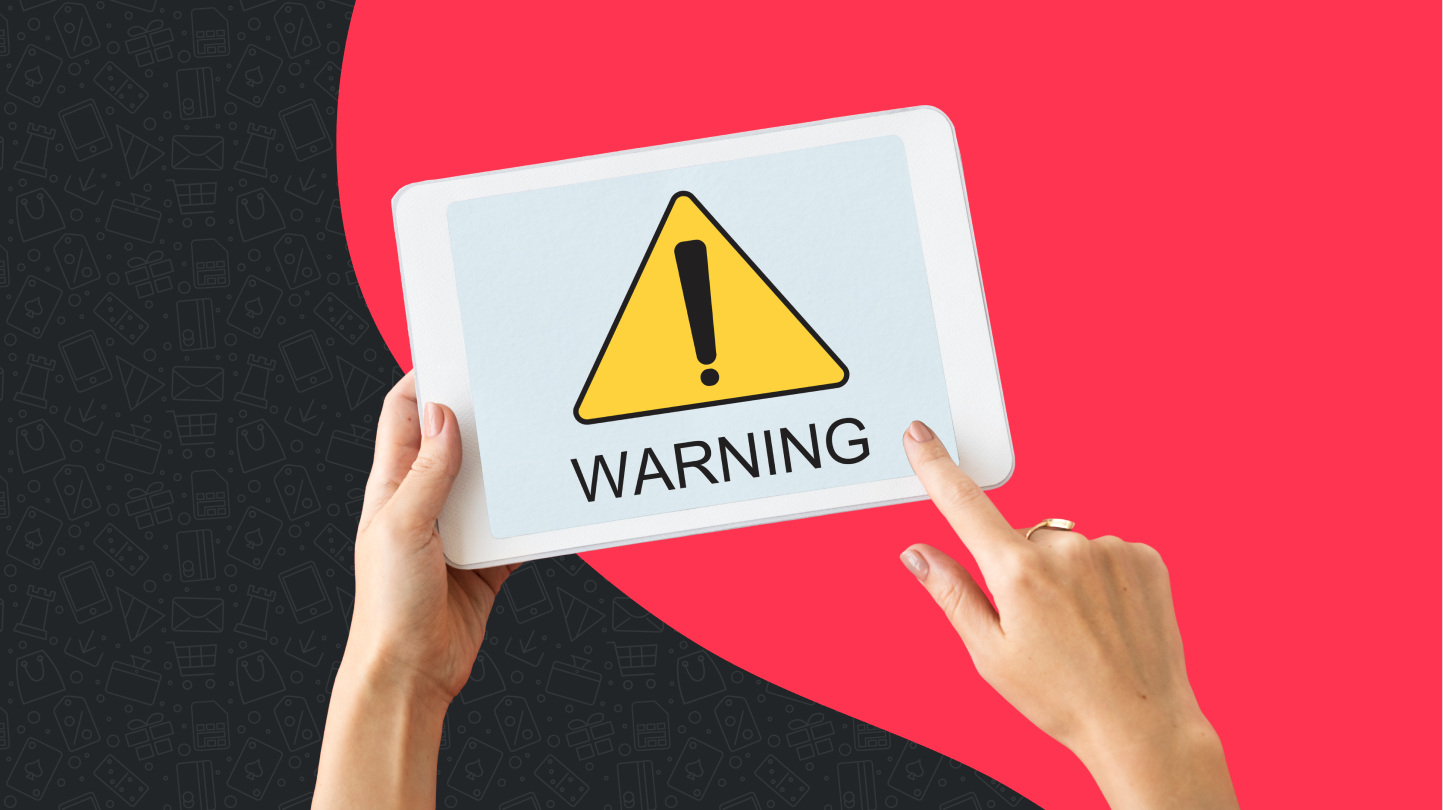Ever get a strange link from a “postal service” that you don’t recognize? Or a customs payment request for a package you don’t remember? Before you click that suspicious link, watch out. This could be parcel or package delivery fraud. With online shopping being more popular than ever, delivery scams are becoming a common trick to watch out for, especially during the holiday season. Scammers often pose as well-known courier services, such as UPS, DHL or DPD, asking for additional “insurance” payments, and sending fake tracking updates, or “missed delivery” messages to get you to click risky links or share personal info. Spotting these scams early can help you avoid situations like identity theft or financial loss. In this article, we’ll explain how these scams work, the red flags to look out for, and how to stay safe online.
What is a Package Delivery Scam and How it Works
We’ve already shared our tips for avoiding pet scams and romance scams, but when it comes to cybersecurity, sadly, there’s always more to keep aware of. According to our data, 9% of fraud cases reported by our customers in 2024 are delivery scams. In those instances, fraudsters ask the victim to pay the “insurance” with products such as Neosurf, Steam or Transcash and is particularly popular among scammers in the UK, Germany and Sweden. As we stated above, parcel delivery scams typically involve scammers posing as popular courier companies. Victims receive messages (usually SMS or email) claiming they must cover additional costs, like insurance or delivery charges, before their package can be delivered. Scammers will provide a payment link; the transaction can be done via providers like PayPal or often with a gift card. While this type of fraud has been around for a while, it’s especially popular during the holiday season when people expect many parcels and may lose track of the ones they actually ordered. Additional stress during this time doesn’t help either, making potential victims less alert and helping fraudsters slip through unnoticed.
Examples of Delivery Scams
Fraudsters constantly try to improve their methods, but thankfully, once you know the pattern, fraud prevention gets easier. And we are here to help keep you ahead of the scammers. Here are some examples of parcel scams to look out for, especially during Christmas. While some of them will convince you to pay an additional fee with a gift card, as discussed earlier, there are other examples of fake shipping messages that you should know about.
-
A message claiming a small fee is required to release your package. It’s possible that you will be asked to pay with a gift card - major red flag as a reputable company will never ask this.
-
Information that the package you sent to someone couldn’t be delivered due to incorrect information. You will be asked to act immediately, by entering your personal and payment information.
-
A fake message in which you are informed that the delivery wasn’t possible because you weren’t home. The link supposedly redirects you to schedule another delivery, but instead, it might contain a virus.
-
A message may claim that your parcel won’t be delivered unless you download an app. These apps often contain malicious software designed to capture your personal information the next time you use them.
Example of a fake shipping message
How To Avoid Being Scammed Online by Delivery Fraud
Often times fraudsters will impersonate legitimate companies like Evri, UPS, DPD, DHL or Uship. The good news is that at dundle, we’ve noticed a drop in such cases in the last year. We want to help users everywhere become more aware of these scams and ones similar, and we’re hopeful that it will become more difficult to get away with internet crimes like these. While cybercrime is scary, there are ways to keep yourself safe. So here are some tips that will help you to spot a parcel delivery scam and fake shipping messages.
Pay Attention to Red Flags in the Message
Scammers want you to make a rushed decision, so you don’t have time to think clearly about the situation. In the case of parcel delivery email scams, they create urgency by saying your package will be returned if you don’t act quickly, by clicking a link or paying extra costs. Remember: most legitimate carriers do not ask for additional delivery fees for a package already in transit, especially if you have to pay with a gift card.
Look Out For Typos and Mistakes
While scammers tend to try to replicate delivery service emails. Many of them will include typos, grammar mistakes, or a lazy design that doesn’t quite look like the official one. There are many instances when it’s hard to identify a fake message at first glance, more often than not, multiple mistakes can definitely be spotted.
Verify Links Carefully
Delivery scam links may look like they're from a major carrier but often contain misspellings or extra characters (e.g., “evrii..ccom” instead of “evri.com”). Instead of clicking on links, go directly to the carrier’s website and enter the tracking number there. Or use a reputable shipment tracking platform like AfterShip to monitor your deliveries in real-time, and reduce your risk of falling victim to fraudulent tracking messages.
Check the Sender’s Information
If the sender’s email address doesn’t look like a company address (e.g., a personal Gmail or Yahoo address), it’s probably a scam. Also, be cautious if a message comes from an unfamiliar or foreign phone number. Most carriers have specific numbers they use for communication.
Go to The Source
Many companies, like DHL, Evri or FedEx, have fraud departments and provide their customers with detailed information about scam attempts using their names. If you’re in doubt, go to a specific courier’s website and check the current data to see if your situation matches those showcased on their platforms.
Double-check with the Carrier’s Customer Support
If you're still not sure whether a notification is legitimate, contact the delivery carrier directly, by using the contact info on their official website. Provide them with screenshots to confirm if the message you received is a scam.
Are You a Victim of Delivery Fraud? Here’s What To Do
Some fraud cases are really hard to see, so don’t worry if you’ve fallen victim to a fake shipping scam. It can happen to anyone. Here’s what you can do in that situation:
-
Contact your payment provider. Gift cards are usually non-refundable, but if you act quickly, there is a chance that the transaction will be blocked timeously.
-
Contact the platform through which the crime occurred. Whether it is Facebook marketplace or another website, it’s important to report the fraud as quickly as possible, so the person behind the crime can be blocked from the platform immediately.
-
Get in touch with the courier company and webshop where you bought a gift card (if applicable). Remember that you’ve been a victim of fraud, not a real company, so they are not able to provide you with much help. However, they need to know about such cases to protect their customers. They can also provide you with more detailed information about what to do next.
-
Report the crime to the local authorities.
What dundle is Doing for Fraud Prevention
As a trustworthy gift card webshop, at dundle we make sure to keep our customers safe and secure, by implementing several security measures. Unfortunately, scammers tend to choose gift cards to trick their victims. Why? They work as digital cash, which means they are harder to track by the authorities. Additionally, gift cards are commonly purchased all over the world, which makes them easier for scammers to use. Our dundle Risk Department continuously monitors suspicious activities, implementing specific restrictions in high-risk regions and with particular products, based on reported cases and data patterns. Our company is dedicated to keeping customers safe and informed, which is why we share these articles about cybersecurity. dundle is also a member of Merchant Risk Council (MRC), a global non-profit organization devoted to payment security and fraud prevention for eCommerce businesses. We believe that this will further strengthen our commitment to preventing fraud.
Spot Delivery Fraud in an Instant
While fraudsters are more active during the holiday season, so are those who try to stop them and protect customers from becoming victims of various internet scams. dundle is actively working on implementing the best security measures to keep you safe the whole year round! Hopefully, you found this article helpful, and will always be one step ahead of the scammers. So you can look out for those deliveries with confidence and stay safe!







